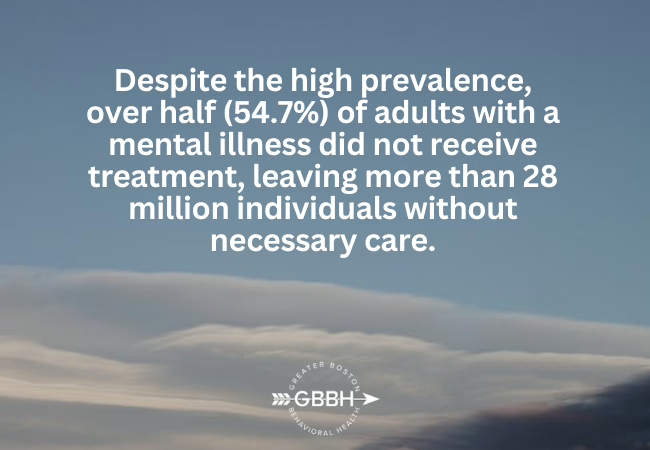Mental health is vital for leading a satisfying and balanced life. However, establishing and maintaining mental health requires intentional work, self-awareness, and support. Behavioral health is critical in this process, as it helps people understand their thoughts, feelings, and behaviors to foster resilience and recovery.
Mental wellness is a journey that requires support, self-awareness, and effective treatment strategies. For individuals struggling with anxiety, depression, trauma, addiction, or other mental health conditions, achieving stability and long-term recovery involves more than just symptom management—it requires a strong foundation in behavioral health.
Whether dealing with mental health issues, substance use disorders, or emotional pain, establishing a solid foundation for behavioral health is critical to long-term recovery and overall wellness.
This guide explores the importance of behavioral health in recovery, key components of effective mental health treatment, and how individuals can take proactive steps toward wellness.
Behavioral Health: Know the Term!
Behavioral health is the relationship between actions, emotions, and general well-being. It involves managing mental health disorders, substance abuse concerns, and emotional difficulties that interfere with daily functioning. Behavioral health, as opposed to physical health, which focuses on bodily well-being, takes into account psychological, emotional, and social elements that influence an individual’s life.
Key aspects of behavioral health include:
- Emotion regulation
- Coping skills
- Stress Management
- Healthy partnerships
- Substance abuse treatment
- Mindfulness and Self-Care
Behavioral health focuses on how thoughts, emotions, and behaviors impact overall well-being. It encompasses mental health conditions, substance use disorders, and stress-related issues that influence daily life.
Without proper behavioral health treatment, mental health conditions can worsen, leading to greater emotional distress, isolation, and even physical health problems.
The Importance of Recovery in Mental Wellness
Recovery is a personal journey of recovering balance, confidence, and control over one’s mental and emotional states. It does not imply the absence of obstacles, but rather the ability to manage and traverse them successfully. Recovery from mental health illnesses or drug use disorders is an ongoing process that takes dedication and the correct support system.
- Professional Support and Treatment
Seeking professional help is one of the most effective strategies to address behavioral health difficulties. Therapy, counseling, and medication give people the abilities they need to understand and control their emotions. Cognitive-Behavioral Therapy (CBT), Dialectical Behavior Therapy (DBT), and trauma-informed care are common ways of dealing with mental health issues.
- Create a Support System
A solid support system made up of family, friends, support groups, and mental health experts is essential during the rehabilitation process. Connecting with people who understand your problems gives you a sense of belonging and decreases feelings of isolation.
- Developing Healthy Coping Mechanisms
Replacing unhealthy habits with positive coping skills is critical for mental health. Meditation, exercise, creative expression, and journaling are all excellent ways for people to manage their stress and emotions.
- Setting a Routine
A structured regimen encourages stability and mental clarity. Consistent sleep patterns, adequate nutrition, regular physical activity, and scheduled daily activities all help to improve general well-being and prevent relapse.
- Addressing the Underlying Issues
Unresolved trauma, negative thought habits, and co-occurring illnesses are all common causes of mental health issues. Therapy and self-reflection are required to address these underlying reasons and achieve long-term recovery.
- Mindfulness and Self-care
Mindfulness encourages people to be present and lessen anxiety. Deep breathing, outdoor walks, and hobbies all help to boost emotional resilience and induce calm.
How Behavioral Health Supports Long-Term Recovery
Recovery is a multi-step process that involves emotional, psychological, and behavioral adjustments. Many individuals experience setbacks due to unmanaged stress, past trauma, or underlying mental health disorders. By focusing on behavioral health, individuals can build a strong foundation for lifelong recovery.
Here’s how behavioral health care supports mental wellness:
1. Developing Emotional Resilience
Recovery requires the ability to handle stress, setbacks, and emotional distress without resorting to unhealthy coping mechanisms. Behavioral health programs help individuals:
- Recognize and regulate emotions through DBT Therapy and mindfulness techniques.
- Challenge negative thought patterns through CBT Therapy.
- Build problem-solving skills to navigate difficult situations.
2. Addressing Underlying Mental Health Conditions
Many individuals struggling with addiction or emotional instability have co-occurring mental health conditions such as:
- Anxiety disorders
- Depression
- PTSD and trauma-related disorders
- Bipolar disorder
Effective behavioral health programs treat both mental health conditions and substance use disorders together, ensuring that individuals receive comprehensive and integrated care.
3. Creating Healthy Routines and Stability
A structured routine helps individuals:
- Improve sleep patterns
- Develop healthier eating habits
- Engage in positive daily activities
At Greater Boston Behavioral Health, our Residential Treatment Program and Inpatient Treatment Program provide structured environments where individuals can focus on healing, establish healthy habits, and transition into independent living.
4. Building Strong Social Support Systems
Behavioral health in Boston includes community-based resources, therapy groups, and family involvement to help individuals strengthen their support systems.
- Group therapy programs provide peer support and shared experiences.
- Family therapy programs rebuild trust and teach loved ones how to support recovery.
- Community-based behavioral health programs foster connection and accountability.
5. Teaching Effective Stress Management Techniques
Behavioral health programs introduce techniques to manage stress and emotional triggers without turning to destructive behaviors. These include:
- CBT-based stress reduction techniques
- Mindfulness and meditation practices
- Coping skills to prevent relapse and emotional breakdowns
Types of Behavioral Health Treatment Programs
Greater Boston Behavioral Health offers various levels of care to ensure individuals receive personalized and effective treatment.
1. Inpatient Treatment Program
- 24/7 medical and psychiatric care
- Intensive therapy for severe mental health condition
- Ideal for individuals struggling with suicidal thoughts, self-harm, or acute mental health crises
2. Residential Treatment Program
- Live-in treatment with structured daily routines
- Long-term therapy to address deep-rooted emotional and behavioral issues
- Ideal for individuals needing ongoing support and intensive care
3. Partial Hospitalization Program (PHP)
- Daytime treatment with the ability to return home in the evenings
- Combines individual therapy, group therapy, and medication management
- A structured alternative to inpatient care
4. Intensive Outpatient Program (IOP)
- Flexible therapy schedule for those transitioning from higher levels of care
- Focus on developing coping skills, emotional regulation, and relapse prevention
- Ideal for individuals balancing work, school, or family commitments
5. Outpatient Therapy Programs
- Ongoing therapy for mental health maintenance and emotional support
- CBT Therapy and DBT Therapy to improve daily functioning
- A great option for individuals in long-term recovery
Breaking the Stigma of Behavioral Health
One of the most significant barriers to obtaining treatment for mental health disorders is stigma. Many people are afraid of being judged or discriminated against, which prevents them from seeking the necessary assistance. Educating society about mental health and encouraging open dialogue can assist in minimizing stigma and inspire people to prioritize their own well-being.
Get Instant Support for Behavioral Health and Recovery- Call GBBH!
Behavioral health and recovery are essential components of mental wellness. Individuals can lay the groundwork for lifetime well-being by seeking professional Behavioral Health treatment in Boston.
If you’re looking for professional help on your path to mental wellness, consider contacting Greater Boston Behavioral Health. Our experienced team offers comprehensive mental health services that are personalized to your specific needs, assisting you in laying a solid foundation for a better future. So, get ready with GBBH to lead the life the way you want.
Start Your Journey to Recovery Today
If you or a loved one is struggling with mental health challenges, taking the first step toward behavioral health recovery can transform your life.
Call Greater Boston Behavioral Health at (617) 307-3842 to learn more about our mental health therapy programs, inpatient treatment, or outpatient services in Boston. Mental wellness is possible—let’s build a strong foundation together.
FAQ on Behavioral Health and Recovery
What is behavioral health, and why is it important?
Behavioral health refers to the connection between behaviors, emotions, and mental well-being. It includes mental health conditions, substance use disorders, and stress management. A strong foundation in behavioral health helps individuals develop emotional resilience, improve relationships, and manage stress effectively.
How does behavioral health impact recovery?
Behavioral health treatment helps individuals:
- Address underlying mental health conditions such as anxiety, depression, and PTSD.
- Develop healthy coping skills to manage stress and prevent relapse.
- Build emotional resilience and self-awareness through therapy and structured routines.
- Strengthen relationships and communication skills to improve personal and social interactions.
What types of behavioral health treatment programs are available in Boston?
At Greater Boston Behavioral Health, we offer:
- Inpatient Treatment Program for 24/7 intensive care.
- Residential Treatment Program for long-term structured healing.
- Partial Hospitalization Program (PHP) for daytime treatment with evening flexibility.
- Intensive Outpatient Program (IOP) for structured therapy while maintaining daily responsibilities.
- CBT Therapy and DBT Therapy to develop emotional regulation and coping strategies.
What role does therapy play in behavioral health recovery?
Therapy is a critical component of behavioral health recovery.
- CBT Therapy helps individuals reframe negative thoughts and develop healthy coping mechanisms.
- DBT Therapy teaches mindfulness, distress tolerance, and emotional regulation techniques.
- Group and family therapy provide peer support and strengthen relationships.


